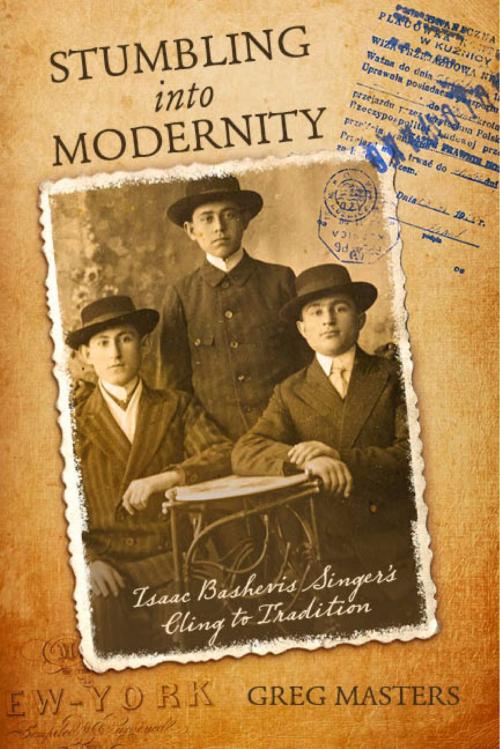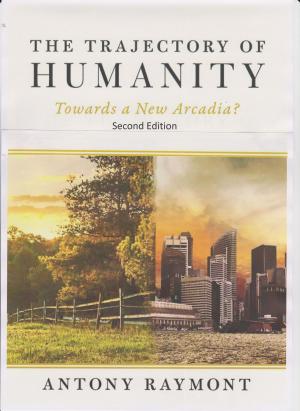Stumbling Into Modernity
Isaac Bashevis Singer's Cling to Tradition
Fiction & Literature, Literary Theory & Criticism, Jewish| Author: | Greg Masters | ISBN: | 9781623094225 |
| Publisher: | BookBaby | Publication: | September 10, 2012 |
| Imprint: | Language: | English |
| Author: | Greg Masters |
| ISBN: | 9781623094225 |
| Publisher: | BookBaby |
| Publication: | September 10, 2012 |
| Imprint: | |
| Language: | English |
Stumbling Into Modernity:
Isaac Bashevis Singer's Cling to Tradition takes an admiring, yet critical look at a body of literature that reflects a crossover, not only geographic, with immigration from Poland, but from traditional, tribal values treasured in the Jewish provinces of Europe and then questioned in the new, modern world of America. While this study seeks a place in the modern canon for Singer's work through an appreciation of his achievements, it wrestles with his limitations in continually attempting to reconcile his past with choices available in the present. Singer lived from 1902–1991, and his writing documents the turmoil of the planet in violent transition. But here was a writer who, throughout the 20th century, cobbled together the folk tales of his youth, steeped in moral tales, with an engagement in intellectual evolutions and the secular pleasures of the cosmopolis. The book is imbued with purpose in questioning authority, offering substantive arguments to deflate the ruling order – particularly in the guise of parental rule and male privilege – with which Singer struggled and was, ultimately, entangled. A liberation theme runs throughout the book, paralleling Singer's long-running struggle to replace God with free will. As Singer attempts to extricate himself from the dogma and strictures of his father and to find his place in an ever-changing world, this author follows along to celebrate his nourishing stories, novels and memoirs, but also, with a thorough reading in critical analysis, to critique Singer's responses. A persuasive argument is presented, I believe, when Singer's work is compared to that of his sister, Esther Kreitman. While describing a similar scenario, the two are loaded with disparites – Kreitman's narrative offering evidence of the female viewpoint her brother fails to comprehend. There is a new generation of readers ready to be exposed to the work of this man. The work is rich as story-telling, history and document of its time. The quality of the writing is equal to any of those moderns considered canonical. Yet, it is also material worthy of reflection and continuing discussion. It can appeal to general readers, as well as to classrooms of evolving minds. The irony is that his work is condemned by many Jewish groups, their consensus being that he blasphemes the sense of order by questioning authority – political, religious and personal – and dallying in secular activities, including romantic entanglements. So, he's never been promoted by those institutions from which he springs, and whose values and cultural history he so fondly chronicles. And, because his writing deals with Jewish characters, he has been marginalized by the general readership. But, his voice trumpets the individual's attempt to make sense of the immediate environment. It can appeal to any individual in isolation vulnerable to challenges and in need of a moral compass, yet susceptible to the forces to which we all succumb – whether sex or rebellion.
Stumbling Into Modernity:
Isaac Bashevis Singer's Cling to Tradition takes an admiring, yet critical look at a body of literature that reflects a crossover, not only geographic, with immigration from Poland, but from traditional, tribal values treasured in the Jewish provinces of Europe and then questioned in the new, modern world of America. While this study seeks a place in the modern canon for Singer's work through an appreciation of his achievements, it wrestles with his limitations in continually attempting to reconcile his past with choices available in the present. Singer lived from 1902–1991, and his writing documents the turmoil of the planet in violent transition. But here was a writer who, throughout the 20th century, cobbled together the folk tales of his youth, steeped in moral tales, with an engagement in intellectual evolutions and the secular pleasures of the cosmopolis. The book is imbued with purpose in questioning authority, offering substantive arguments to deflate the ruling order – particularly in the guise of parental rule and male privilege – with which Singer struggled and was, ultimately, entangled. A liberation theme runs throughout the book, paralleling Singer's long-running struggle to replace God with free will. As Singer attempts to extricate himself from the dogma and strictures of his father and to find his place in an ever-changing world, this author follows along to celebrate his nourishing stories, novels and memoirs, but also, with a thorough reading in critical analysis, to critique Singer's responses. A persuasive argument is presented, I believe, when Singer's work is compared to that of his sister, Esther Kreitman. While describing a similar scenario, the two are loaded with disparites – Kreitman's narrative offering evidence of the female viewpoint her brother fails to comprehend. There is a new generation of readers ready to be exposed to the work of this man. The work is rich as story-telling, history and document of its time. The quality of the writing is equal to any of those moderns considered canonical. Yet, it is also material worthy of reflection and continuing discussion. It can appeal to general readers, as well as to classrooms of evolving minds. The irony is that his work is condemned by many Jewish groups, their consensus being that he blasphemes the sense of order by questioning authority – political, religious and personal – and dallying in secular activities, including romantic entanglements. So, he's never been promoted by those institutions from which he springs, and whose values and cultural history he so fondly chronicles. And, because his writing deals with Jewish characters, he has been marginalized by the general readership. But, his voice trumpets the individual's attempt to make sense of the immediate environment. It can appeal to any individual in isolation vulnerable to challenges and in need of a moral compass, yet susceptible to the forces to which we all succumb – whether sex or rebellion.















